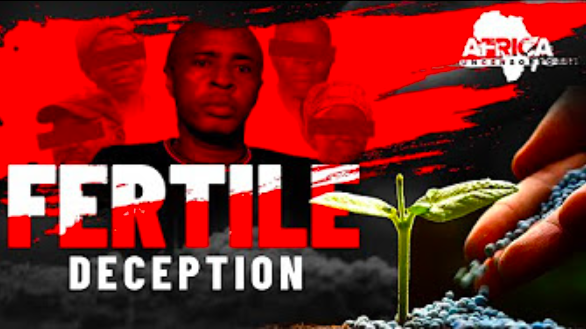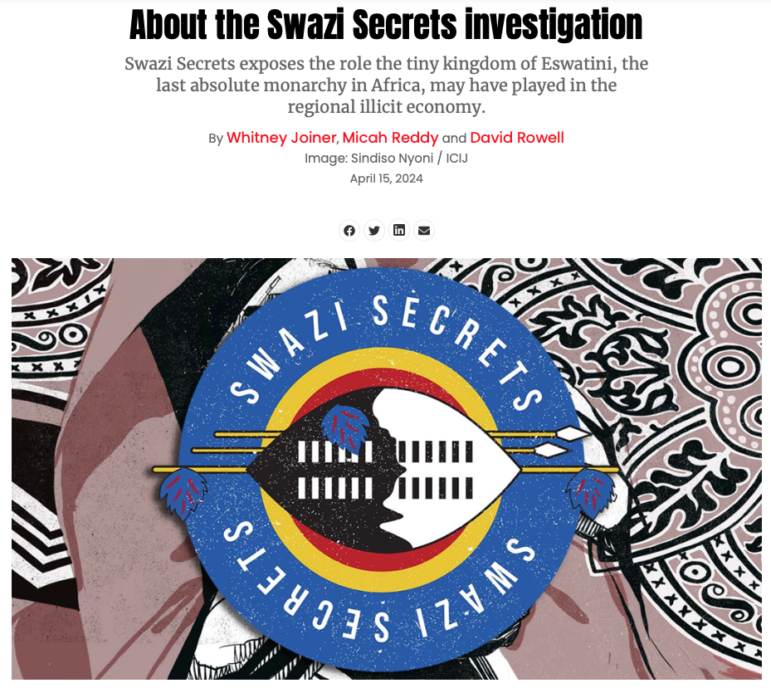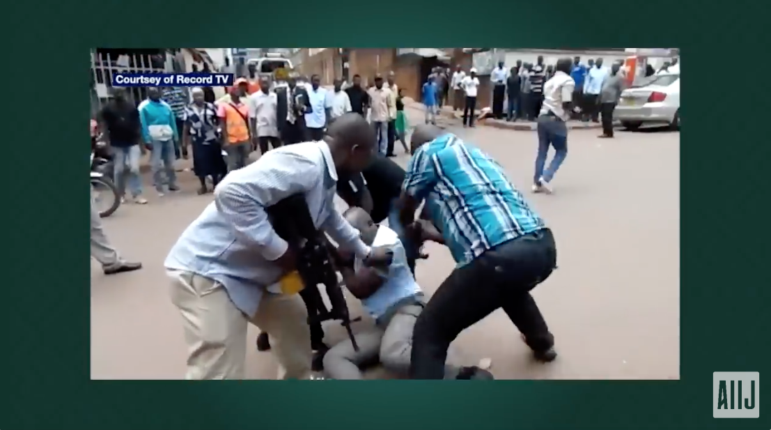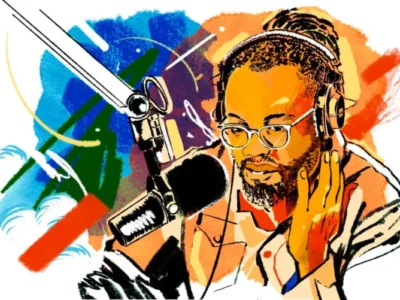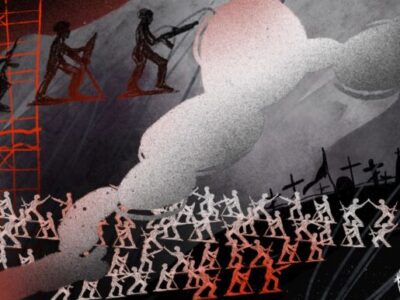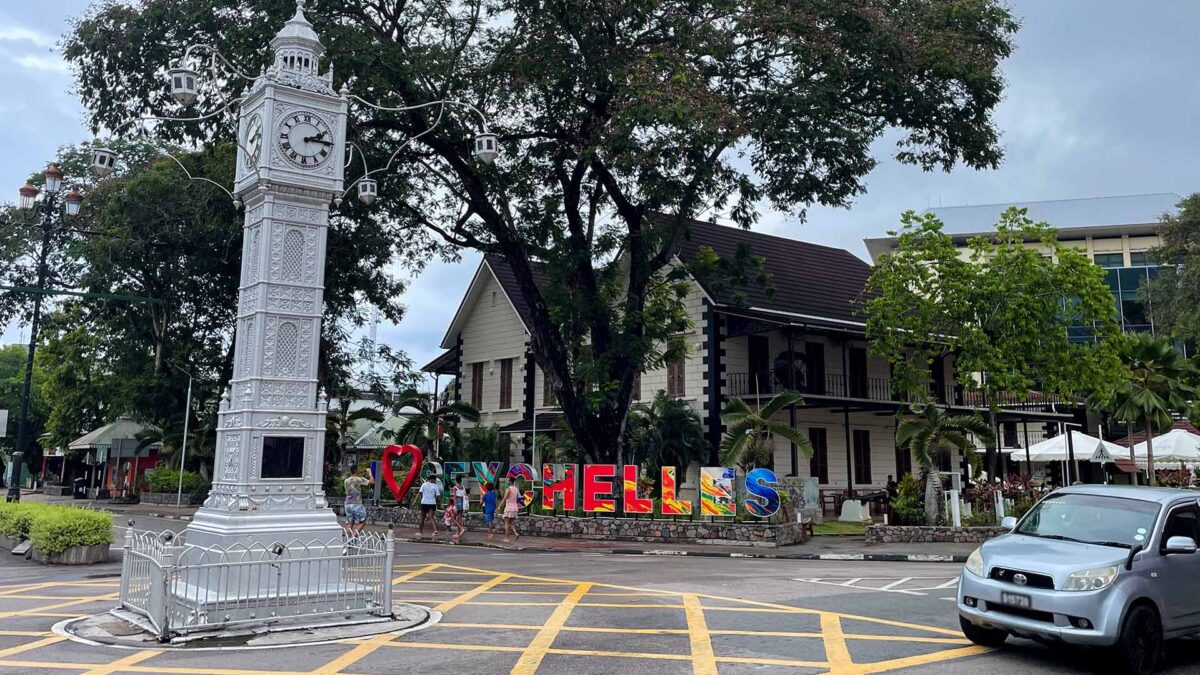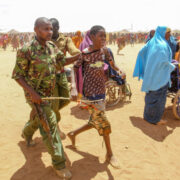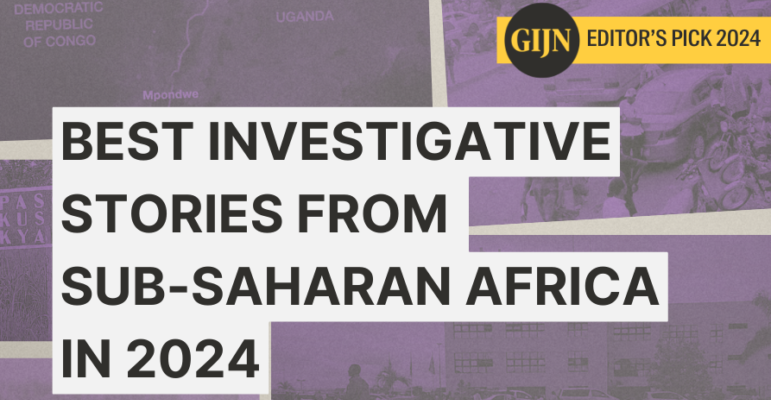
Choosing the top investigative stories from sub-Saharan Africa to feature in GIJN’s annual editors’ picks project is getting more challenging — and not because there is a shortage of watchdog journalism content to pick from. On the contrary, the options from across the continent are growing more abundant and diverse.
This is because many African investigative journalists are increasingly prolific with their output, daring in the pursuit of facts, collaborative across borders and reporting beats, innovative in their storytelling, and persistent in holding those in power to account until they achieve some discernible impact.
Since May 2020, GIJN has systematically kept track of investigative stories produced across Africa and curated, each month in our Africa newsletter, the stories that we believe represent some of the best watchdog journalism on the continent. It is from those stories — along with others that make it to our bi-monthly global newsletter — that we make our annual editor’s picks.
This year, 50 stories from across English-speaking sub-Saharan Africa made it into our Africa newsletter, while 21 stories from Africa and/or about issues on the continent were selected to feature in GIJN’s global newsletter. Only eight of those stories will be part of our Africa editor’s picks.
However, some of the stories on our monthly lists have already been recognized at national, regional, or continental levels over the course of the year. This is a testament to their high quality, which saw both GIJN and the judges of the respective awards they won identify them as the best of the several stories done during the course of the year or the respective award periods. These award-winning stories include:
- How Congo Trees are smuggled into East Africa, for which John Blanshe Musinguzi was recognized with the African Investigative Journalist of the Year Award at the 2024 African Investigative Journalism Conference.
- Inside Abuja’s kidney ‘market’ where the rich prey on the poor, which earned Lami Sadiq the top prize in the print category and the runners-up accolade in the documentary category at the 19th Wole Soyinka Award for Investigative Reporting.
- ‘New Energy’ rush is stripping DRC’s natural assets by Jonas Kiriko, who won a PAJI24 African Investigative Journalism Award for his in-depth investigation into the plundering of protected nature reserves in the Democratic Republic of Congo by cobalt miners.
- Unmasking a Drug Destroying Street Children by Annie Zulu, which exposed the harrowing reality of how Zambian children as young as 14 become addicted to a dangerous drug from jet fuel called “sticker.” Zulu then received the 2024 MakanDay Eminent Prize for Investigative Journalism.
Because those stories have already received public acclaim, we opted not to include them in our Africa editor’s picks. That decision then paves the way for us to shine our spotlight on other equally impressive investigative reports that have not yet been celebrated. Below are the stories we identified as representing some of the best investigative journalism efforts from sub-Saharan Africa in 2024.
Kenya — Fertile Deception
In a two-part documentary produced by a Cynthia Gichiri-led investigative team, Africa Uncensored went undercover to document how unscrupulous businesses cleverly packaged ordinary sand and sold it to unsuspecting farmers as organic fertilizers. To corroborate their evidence from the undercover investigation, Africa Uncensored conducted laboratory tests on the counterfeit fertilizers being sold as a part of the subsidy program.
After the story broke, it had a domino effect. The executive branch of Kenya’s government initiated a probe into the scam, while the Senate started its own parallel investigation. The government carried out its own independent tests and conceded that farmers had been supplied fake fertilizer. Eventually, the owners of the companies behind the scam were arrested and charged in court, along with senior officials from the National Cereals and Produce Board.
However, after a disagreement among members of the committee investigating the matter, some legislators were accused of taking bribes to save his neck. The impasse over the fertilizer scandal was one of the factors that fuelled nationwide protests, which nearly led to the collapse of President Ruto’s government.
Ghana — The Scholarships Bonanza

The Fourth Estate’s investigation found that scholarships meant for underprivileged Ghanaian students were used by high-profile families and wealthy individuals to attend colleges abroad in the UK and US, like Harvard University. Image: Shutterstock
In early April 2024, The Fourth Estate, a nonprofit, public interest and accountability investigative journalism project of the Media Foundation for West Africa (MFWA), revealed that politically connected individuals had been keeping for themselves, their relatives, and close associates several international scholarships meant for the poor.
Acting on a tip in a report released by Ghana’s Auditor General, the publication made a Right to Information (TRI) request to the Ghana Scholarships Secretariat (GSS). The released information, along with analysis from The Fourth Estate, indicated that family members of politicians and social highflyers in Ghana had taken the scholarships. The Fourth Estate also found that some of these high-profile individuals even received multiple scholarships, while some beneficiaries received funding to study courses abroad that were available in Ghanaian universities.
Swaziland — Swazi Secrets
In a digital era where organized crime often has multinational tentacles, this cross-border story by the International Consortium for Investigative Journalists (ICIJ) best illustrates what is possible when reporters and editors put their heads together to solve journalistic puzzles and expose crime that stretches beyond a particular country’s or region’s borders.
Led by the International Consortium for Investigative Journalists (ICIJ), a team of 38 journalists spread across 11 countries dug into a leak of more than 890,000 internal records from the Eswatini Financial Intelligence Unit — the largest of its kind from a financial intelligence unit in an African country — to develop a series of investigative pieces.
Among other discoveries, the reporters found that the weak, anti-money laundering controls in the small kingdom of Eswatini, the last absolute monarchy in Africa, made it easy to move illicit finances and smuggle gold.
According to project partner Finance Uncovered, the investigation also revealed “for the first time the inner workings of an African anti-money laundering unit as it pursued investigations into a wide range of suspicious activity,” as well as the political interference they had to contend with, including from the King’s inner circle.
The embarrassing revelations angered Eswatini’s ruling party, who demanded an investigation — but not into the apparent financial misconduct. Instead, the government sought to uncover the identity of the whistleblower and how the internal government records ended up with Distributed Denial of Secrets, the US-based group that passed the leaked information to the ICIJ.
Nigeria/Global — Unmasking a Televangelical Preacher
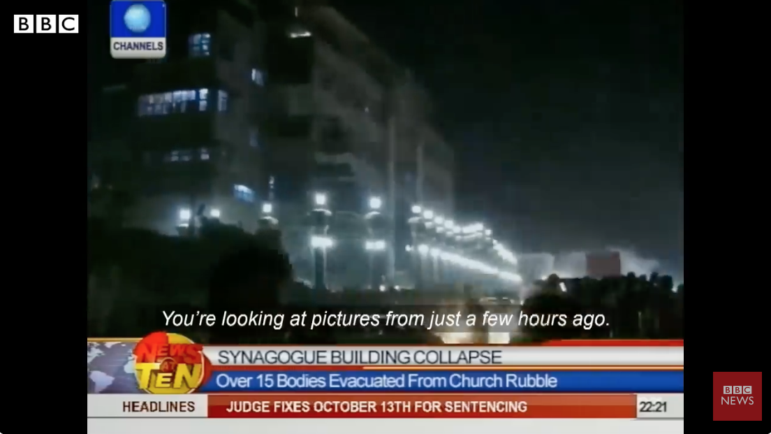
TV news images of the collapse of one of the synagogue buildings run by the Nigerian preacher, which killed 116 people. Image: YouTube, BBC
In a three-part investigative series, with findings drawn from three continents, BBC Africa Eye uses detailed, first-person testimonies of close victims and allies and historical footage to expose the controlling conduct and atrocities committed by a hugely popular and globally recognized Nigerian preacher whose influence gave him personal access to presidents, kings, and some of the world’s wealthiest people.
The two-year investigation uncovered instances of alleged abuse and violence, claims of fake miracles that nevertheless drew millions of people to his congregation, allegations of bribery, and intimidation of victims’ families to cover up his role in the 2014 collapse of his church that killed 116 people.
The church, which is now run by his widow, released a statement describing the BBC Africa Eye report as unfounded and claimed that the people interviewed in the documentary were unknown to the church. Nevertheless, not long after the BBC’s story YouTube banned the church’s official channel from its platform “for violating its hate speech policies,” while MultiChoice, Africa’s largest pay TV provider, similarly stopped broadcasting the religious channel.
Democratic Republic of Congo — The Misdiagnosis Epidemic
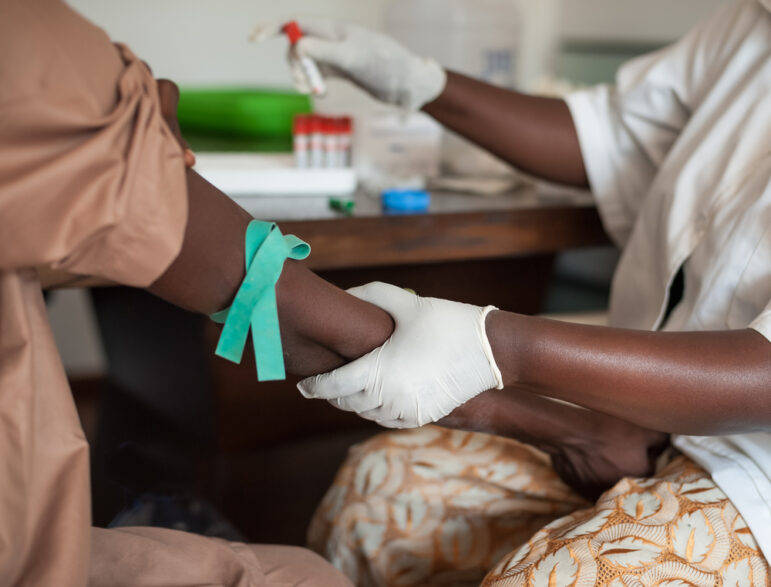
Image: Shutterstock
This story, by Congolese journalist Françoise Mbuyi Mutombo for the Global Press Journal, breaks down a complex public health issue with compelling storytelling supported by old-school reporting methods such as interviews, documents, and observation.
The investigation opens with the case of Marie Bolisawu, a patient at a small private clinic in the Democratic Republic of Congo’s Tshopo Province, who expected to be diagnosed with malaria but was told she had a thyroid problem. She is not alone. According to an analysis by the Tshopo Provincial Health Division, 65% of patients tested between 2020 and 2023 at private laboratories in the province were misdiagnosed. Division health inspector Jérôme Bolima explains the reason for this high rate: 60% of the private medical laboratories operating in Tshopo province illegally employ unqualified staff, who provide inaccurate test results.
Mutombo approached nine owners and managers of private health centers with poor diagnostic reputations. Five refused to speak about the matter and four denied the accusations. Through interviews with local residents, health professionals, and rights activists, Mutombo develops an investigative diagnosis of how private medical laboratories circumvent established professional standards for health facilities.
Uganda — Abducted and Tortured
On November 16, Ugandan authorities seized opposition politician and four-time presidential candidate Kizza Besigye in Kenya’s capital, Nairobi, and drove him back to Kampala, where he was subsequently charged in a military court with possession of guns and plotting to overthrow the government, and remanded until January 7, 2025.
This was not Besigye’s first arrest. And, according to this African Institute for Investigative Journalism (AIIJ), documentary, similar abductions are “becoming normal” in Uganda. Rights organizations cite reports of so-called “drone” vans arresting opposition figures, civil society activists, and government critics and allegedly detaining and even torturing them. To investigate the abduction and torture of ordinary citizens, AIIJ interviewed informers, counter-intelligence officers, “hitmen,” and mercenaries in various agencies and units who have carried out arrests and kidnaps, explaining the “how, why, and where.” The reporting provides insight into the perpetrators’ mindset and motivations, and through first-hand accounts from victims and their families also shows the devastating long-term impact of kidnapping and torture.
In a sit-down interview with AIIJ, Uganda People’s Defence Forces (UPDF) spokesperson, Brigadier General Felix Kulayigye, denied allegations that the army operates “dungeons” and questioned a victim’s claim of being tortured at the hands of military intelligence.
In May 2024, AIIJ also released a documentary on Ugandan police attacks against journalists.
Malawi — How a US Christian NGO Exploits Malawian Children
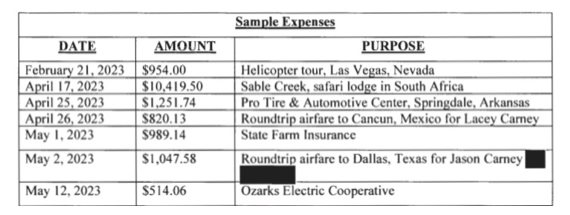
A PIJ analysis of the US charity’s credit card accounts found numerous examples where the nonprofit’s donated funds were used for personal expenditures, including travel and domestic expenses. Image: Screenshot, Platform for Investigative Journalism – Malawi
This collaborative investigation, by the Platform for Investigative Journalism Malawi (PIJ) with support from southern Africa’s IJ Hub and OpenUP/Africa Data Hub, looked into a Christian charity registered in the US state of Arkansas and Malawi. The American couple behind it had been running an inter-country adoption agency and an orphanage, and, through their organization, allegedly solicited funds from US citizens they claimed would go to feed orphaned and malnourished children in Malawi.
Through Access to Information requests, PIJ obtained financial and tax documents that indicated the charity filed very different tax returns in the US and Malawi, used the charity’s debit cards for personal expenses, and spent money from donations on a luxurious lifestyle, which included chartering a sightseeing helicopter tour. The story was picked up by an Arkansas-based NBC affiliate and The Wall Street Journal, and according to an international law resource the US Diplomatic Security Services — an arm of the State Department — launched an investigation into fraud allegations in June 2024.
South Africa — Dirty Laundry
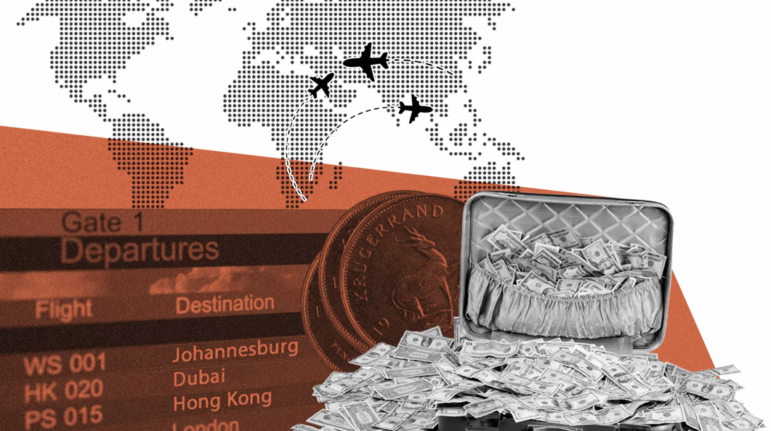
Image: Screenshot, amaBhungane
AmaBhungane’s multi-part series traces the vast web of international money laundering networks (“the organized crime enabling all other organized crime”) originating in South Africa, where legitimate businesses and “outright crooks” alike exploit legal “gray zones” and operate in a thriving illicit financial sector, despite the country having one of the continent’s best-regulated banking systems. The illicit financial networks extend to Dubai, Hong Kong, and other financial capitals. One of the investigation’s main goals, amaBhungane writes, is to “pierce” the secrecy that enables this activity.
Part one reveals how a new set of money laundering actors use illicit gold trade to scam tax authorities; part two traces the inner workings of a Johannesburg cash-in-transit company operating as a “shadow bank” to move millions of dollars for clients over the years; part three identifies some of the state-affiliated actors who have moved dirty cash out of South Africa through the “shadow bank;” part four reveals how Eswatini became a transit hub for southern Africa’s money laundering networks; part five looks into the government contractors who have used existing money laundering infrastructure to move vast sums of their money offshore.
AmaBhungane has yet to conclude this investigation — look out for additional reports towards the end of December 2024 or early next year.

